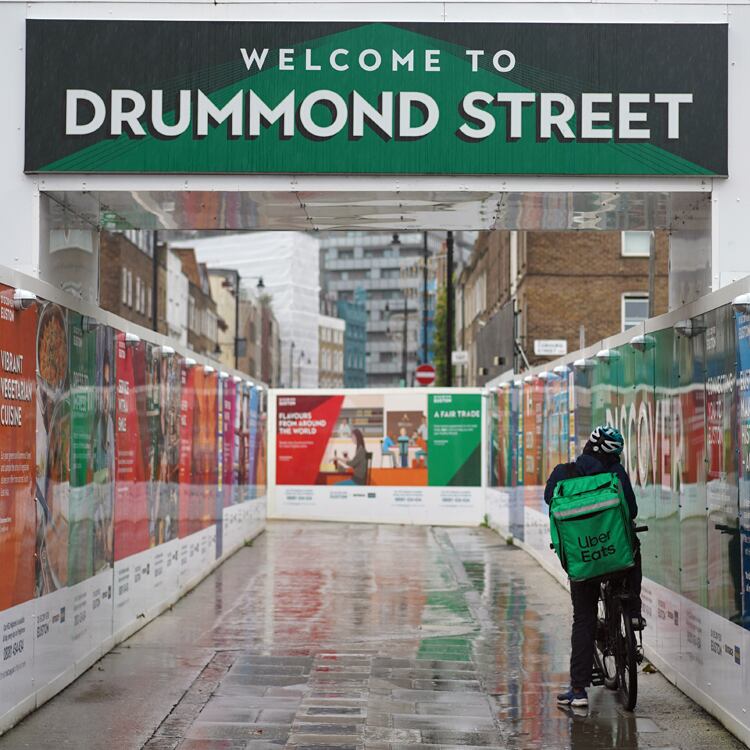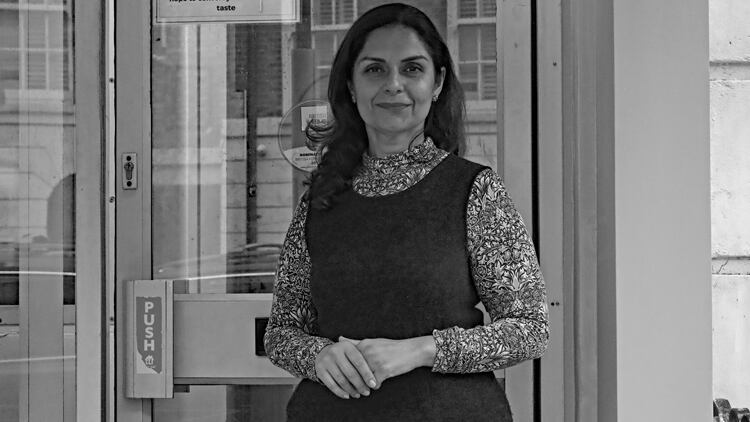Tell us about the history of Drummond Street
It all started in the early 1970s with a halal butcher and a couple of Indian sweet shops. My parents ran the first restaurant on the street, which is just behind Euston Station. It began in a very low-key way. My father was a businessman and ended up getting a lease on a shop on the street as part payment for something. When I started school, my mother started cooking one pot of food and selling it to passers by. In the early 1980s, my father’s other business fell through and he realised my mum, who is a fantastic cook, had created something that could be a source of income as well as a hobby. Ours is a typical immigrant story. I grew up in the restaurant peeling onions and doing my homework in the dining room.
And then more restaurants followed?
Yes. A friend of my father’s opened a vegetarian Indian restaurant next door. Both restaurants did extremely well and in the early 1980s a lot more restaurants opened on the street. Since then, there have always been about a dozen restaurants on the stretch. The majority serve northern Indian and Pakistani food but there are now some Bangladeshi-run restaurants that are comparable to those found on Brick Lane. There’s a great story from the early days of the street about a restaurant called Ravi Shanker (named after the famous Indian musician). One day, Ravi Shanker himself turned up at the restaurant and asked whether the owner had sought permission to use his name. He replied quick as a flash: "how do you know I'm not called Ravi Shanker myself?" He wasn't, but that was the end of it. The street is also the birthplace of the Patak's brand.

Tell us about your own restaurant
My family is originally from Lahore (a city on the Pakistani side of the Punjab). Raavi Kebab serves Punjabi dishes exactly as you would find them in Lahore. We don’t do Michelin star-style or amazing presentation. The food you eat at Raavi Kebab is the same as a Pakistani auntie or grandma would make. Our most famous dishes are our lamb nihari and lamb trotter curry. Madhur Jaffrey’s then husband Saeed Jaffrey (an Indian film star) was a big fan of the latter, he used to make special visits to eat it. It's a labour-intensive recipe. We burn off the hairs with a naked flame, clean the trotters carefully, roast them and finally simmer them for six or seven hours. The trotters are high in collagen, which makes the dish extremely sticky.
As the name suggests you're also famed for your kebabs...
There’s a good story behind them. A family friend ran a famous barbecue place that made a lot of money back in Lahore. My dad asked for the recipe, but was made to swear on the Quran that he would not set up a rival establishment in Lahore. When my dad died, he told me I must never give anyone the recipe for our chicken kebab. Our lamb mince kebab is also popular. The chutney we serve them with is famous too, we make it fresh each day.
What demographic does the restaurant serve?
It has always been quite mixed. We serve the Indian community but also commuters, students from UCL, office workers and tourists. The area is in general extremely good value. Our prices – for example – are lower than those of Pret a Manger. We sell a kebab roll for just £5. We don’t serve alcohol, but the rest of the restaurants on the street do.
How has HS2 affected trade?
It has been a big challenge to say the least. But the street has worked closely with those delivering the project to try and minimise the disruption. Imagine the headaches that come with having builders in your house. It is like that, just on a much bigger scale. There have at times been noise and dust but the biggest issue has been the disruption to the access from Euston Station, which is critical for our trade. It’s not too bad at the moment, though, as there is a good, signposted route. The fact that it looks to have all been for nothing (key sections of the project now won’t go ahead following a Government U-turn) has added to the frustration somewhat.
How did the street fare during the pandemic?
A few places have closed but most have weathered it. But it was a very worrying time. Everyone is close here; at times it was a bit like sitting outside the operating theatre waiting for news about a loved one. It is the shifts caused by the pandemic that have been more challenging. Commuters are a big part of our business and there are fewer of them now. But all areas go through dips and regenerations. Drummond Street has gone through bad times before and come out the other side. There were big problems with drug related crime in the 1980s, for example.
Is there anything in place to try and improve things?
We got a fund from HS2 which is being used to improve the look and feel of the street. It’s currently not especially nice to look at, but we are hoping to address that through improving the frontages of all the restaurants. It would be great if the street looked more vibrant and colourful. We have the community, the food and the stories. Now we just need to make it even more of a destination.


